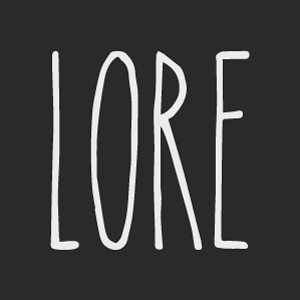Ankarloo, Bengt, and Gustav Henningsen. Early Modern European Witchcraft: Centres and Peripheries (Oxford: Clarendon Press, 2001).
Baker, Emerson W. The Devil of Great Island: Witchcraft and Conflict in Early New England (Palgrave Macmillan, 2010).
Barry, Jonathan, et al. Witchcraft in Early Modern Europe: Studies in Culture and Belief (Cambridge University Press, 2002).
Barstow, Anne Llewellyn. Witchcraze: a New History of the European Witch Hunts (San Francisco, CA: Pandora, 1995).
Drake, Samuel Adams. A Book of New England Legends and Folk Lore, in Prose and Poetry (Little Brown and Co., 1901).
“Elizabeth Morse, Witch of Newbury.” geni_family_tree, 26 Feb. 2019, www.geni.com/people/Elizabeth-Morse-Witch-of-Newbury/6000000003656684080.
Harris, Gordon, et al. “The Witchcraft Trial of Elizabeth Morse of Newbury, 1680.” Historic Ipswich, 13 July 2019, historicipswich.org/2015/08/24/the-witchcraft-trial-of-elizabeth-morse-of-newbury.
Hopkins, Matthew. The Discovery of Witches: in Answer to Severall Queries, Lately Delivered to the Judges of Assize for the County of Norfolk. And Now Published by Matthew Hopkins Witch-Finder, for the Benefit of the Whole Kingdome, 1647.
James. Newes from Scotland, Declaring the Damnable Life and Death of Doctor Fian a Notable Sorcerer, Who Was Burned at Edenbrough in Ianuary Last. 1591. Which Doctor Was Regester to the Diuell That Sundry Times Preached at North Barrick Kirke, to a Number of Notorious Witches. With the True Examination of the Saide Doctor and Witches, as They Vttered Them in the Presence of the Scottish King. Discouering How They Pretended to Bewitch and Drowne His Maiestie in the Sea Comming from Denmarke, with Such Other Wonderfull Matters as the like Hath Not Been Heard of at Any Time. London, 1591.
Kieckhefer, Richard. European Witch Trials Their Foundation in Popular and Learned Culture, 1300-1500 (Berkeley: University of California Press, 1976).
Kittredge, George Lyman. Witchcraft in Old and New England (New York: Atheneum, 1972).
McLachlan, Hugh V., and J. K. Swales. “Lord Hale, Witches and Rape.” British Journal of Law and Society, vol. 5, no. 2, 1978, pp. 251–261.
Levack, Brian P. The Oxford Handbook of Witchcraft in Early Modern Europe and Colonial America (Oxford: Oxford Univ. Press, 2014).
Mather, Increase. An Essay for the Recording of Illustrious Providences: Wherein, an Account Is given of Many Remarkable and Very Memorable Events, Which Have Happened in This Last Age, Especially in New-England. And Are to Be Sold by Tho. Parkhurst, 1687.
McLachlan, Hugh V., and J. K. Swales. “Lord Hale, Witches and Rape.” British Journal of Law and Society, vol. 5, no. 2, 1978, pp. 251–261.
Morse, Willard. “The First New England Witch.” Bay State Monthly, 1885, pp. 1–9.
Muise, Peter. Legends and Lore of the North Shore (The History Press, 2014).
Parker, Bill. “Elizabeth Morse (1617-1690) - Find A Grave...” Find A Grave, 17 Oct. 2010, www.findagrave.com/memorial/60237008/elizabeth-morse.
Robbins, Rossell Hope. The Encyclopedia of Witchcraft and Demonology (Girard & Stewart, 2015).
Stuart I, James. Daemonologie In Forme of a Dialogie Diuided into Three Bookes (Robert Walde-graue, Printer to the Kings Majestie, 1597).
Thomas, Keith. Religion and the Decline of Magic: Studies in Popular Beliefs in Sixteenth and Seventeenth-Century England. Penguin Global, 2012).
Valletta, Frederick. Witchcraft, Magic and Superstition in England, 1640-70 (Ashgate, 2011).
The Boston Traveler, July 12, 1879.
Sidney Perley, “Moll Pitcher,” The Essex Antiquarian Vol. 3, No. 3 (March 1899): 33-35.
“Jane Hooper, the Fortune Teller,” Historic Ipswich, March 2014, https://historicipswich.org/2014/03/30/the-fortune-teller
Samuel Adams Drake, New England Legends and Folklore (Little, Brown, and Company, 1906), pp. 137-148.
